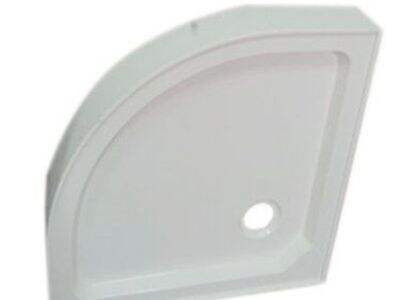Se você tem um projeto e precisa de peças plásticas, escolher o processo de fabricação adequado para essas peças é crucial. A injeção de plástico é um método popular e eficiente para alcançar esse objetivo. Esse processo envolve o uso de uma forma especial chamada molde para criar as peças plásticas que você precisa. No entanto, existem vários pontos-chave a considerar antes de decidir seguir com essa estratégia. Aqui está uma análise mais detalhada de cada um desses fatores para ajudá-lo a tomar a decisão certa para seu projeto.
Como Selecionar o Melhor Plástico para Seu Projeto?
A primeira consideração ao fazer moldagem por injeção de plástico é qual tipo de plástico será usado para suas peças. Diferentes tipos de plásticos existem, todos com características e aplicações distintas. Os plásticos comuns usados neste processo incluem polipropileno, ABS e policarbonato.
O polipropileno é um material de alta resistência, elástico molde de MCA material que é ótimo para itens que precisam se dobrar ou flexionar. Esta é uma excelente forma para esse tipo de coisa, como recipientes de alimentos que você quer que mantenham uma forma, mas também possam ser acessados, ou brinquedos assim, que você quer que sejam seguros e duráveis para brincadeiras.
Outro plástico usado para fazer peças resistentes a impactos é o ABS. Isso significa que é ótimo para coisas que precisam suportar muito estresse ou pressão, como peças de carro que precisam aguentar as exigências da direção ou dispositivos eletrônicos que podem ser batidos ou jogados no chão.
O policarbonato é um tipo forte e transparente de plástico usado em produtos onde a visibilidade é fundamental, como óculos de proteção que permitem aos usuários enxergar claramente enquanto protegem os olhos, ou equipamentos médicos que podem ser transparentes para monitoramento.
Fazendo Seu Molde Funcionar Bem
Mesmo depois de ter selecionado o material plástico certo para o seu projeto, o próximo componente-chave é fazer com que seu molde funcione da maneira mais eficaz possível. Isso envolve considerações sobre múltiplos aspectos, como o design do próprio molde, o tipo de máquina de injeção que você usará, as configurações adequadas de temperatura e pressão para a injeção real e mais.
Equilibrando Qualidade e Preço
Também é muito importante considerar como manter um equilíbrio entre a qualidade de seus m88 helmet peças e o dinheiro que você está disposto a gastar ao considerar a moldagem por injeção de plástico. É importante que você selecione um plástico de alta qualidade, e é realmente fundamental otimizar o design do seu molde para ser custo-efetivo, mas isso não é sua única consideração.
Manutenção e Reparos Explorados
A manutenção regular de moldes de injeção de plástico é essencial para garantir que tudo funcione suavemente e para manter a qualidade das peças que eles produzem. Essas responsabilidades envolvem limpar o molde, inspecionar desgaste e desgaste, e substituir componentes com defeito ou danificados.
Benefícios Ambientais da Injeção de Moldes
Por fim, você também deve considerar as propriedades ecológicas da injeção de moldes de plástico. Por anos, o plástico é o material que a maioria das pessoas pensa quando considera se ele é ou não prejudicial ao meio ambiente, mas este método ainda oferece alguns benefícios que são muito melhores para o nosso planeta.
Por exemplo, a injeção de moldes de plástico gera menos resíduos do que outras técnicas de fabricação porque o plástico excedente pode ser reciclado e usado novamente. Isso significa que menos plástico é enviado para o aterro sanitário. injection tooling pela TQ também pode ajudar a minimizar a energia usada na produção. A razão para isso é que este processo é tipicamente muito mais rápido e eficiente em comparação com outros processos, podendo nos economizar bastante energia ao longo do tempo.


